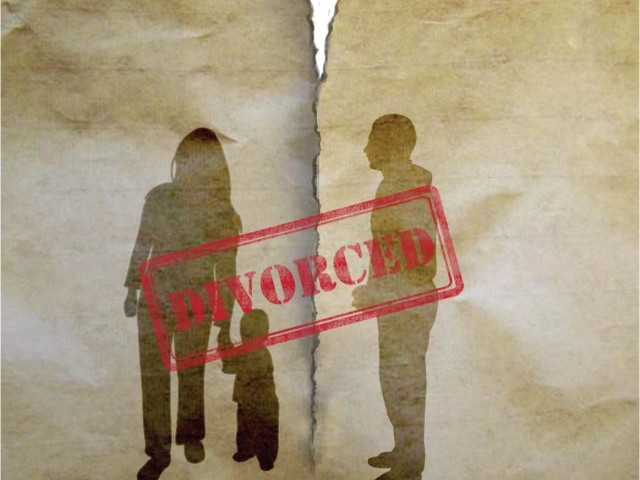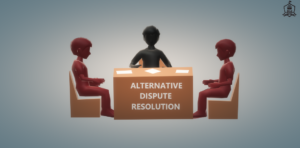Divorce, also known as dissolution of a marriage, means the termination of all the vows between husband and wife, taken during the sacred ceremony of marriage. In Bangladesh, divorce laws are governed by the personal laws as well as by codified laws, e.g- The Dissolution of Muslim Marriage Act, 1939, The Muslim Marriages and Divorces (Registration) Act, 1974 for Muslims, The Divorce Act, 1869 for Christians and codification of the Buddhist family law, including marriage and divorce, is under process. But, there is no such law of divorce in Hindu personal law or any enactment in this area, unlike Muslim, Christian and Buddhist law, in Bangladesh. As a result, the condition of the Hindu couple, specially the Hindu women, is worse than any other community in Bangladesh.
According to the Shastric Hindu Law, marriage is a sacrament, a union, a life-long commitment, a social bond recognized by law but not a contract. Moreover it is regarded as an indissoluble union of flesh with flesh, bone with bone to be continued even in the next world. Thus, the nature of the Hindu marriage is such that divorce is unknown to the general Hindu law. Besides, Bangladesh is a predominantly Muslim state, so it is harder for the government to intervene in discriminatory Hindu personal law. State also tries to maintain a “Delicate Political Balance” between the majority and minority. Unwillingness of the leaders of Hindu community and Hindu citizens also act a barrier to the divorce right.
During the British regime some revolutionary legislative enactments had been introduced to develop the situation of the Hindu women. The Sati Regulation- 1829, The Hindu Widow’s Remarriage Act, 1856, The Special Marriage Act-1872, The Hindu Women’s Right to Separate Residence and Maintenance Act- 1946 are worth mentioning. Interestingly, after the British period no government has taken any step to reform the Shastric Hindu law in Bangladesh, except The Hindu Marriage Registration Act-2012. But surprisingly the registration has not been made mandatory rather optional and the act is also silent about the consequence of non-registration.
On the other hand, in India, a number of laws have been passed by the government to provide proper marital rights to the Hindu women. The Hindu Marriage Act-1955 is one of the most important laws dealing with marriage and divorce. Section 13 of The Hindu Marriages Act- 1955, provides a drastic change in the right to divorce of Hindu women. Some specific grounds such as – adultery, conversion to another religion, unsoundness of mind, a virulent and incurable form of leprosy, desertion, adoption of the religious order, death etc. are enumerated on the basis of which Hindu women can seek a divorce. Even, both husband and wife can seek divorce on mutual consent under this act.
But, in Bangladesh, the scenario is very harsh. Every now and then Hindu women are becoming the headlines of a newspaper. Many of them are being ill-tortured and suffered for inability to bring dowry. Verbal and mental tortures are very common nowadays. Victims can only seek recourse under The Family Courts Ordinance – 1985, Dowry Prohibition Act-1980 or The Women and Child Repression Act-2003, but these enactments are no longer enough to provide proper justice to them. Because for a particular reason, where a Hindu woman in India can seek divorce, a Bangladeshi Hindu woman can only seek punishment under the above-mentioned acts and separate residence at best under The Hindu Women’s Right to Separate Residence and Maintenance Act- 1946 after proving her chastity and willingness to continue to practice her religion.
Under the Constitution of the People’s Republic of Bangladesh, Government has some obligations towards the Hindu women. Article 15 provides responsibility on the state to provide social security to the women, equality before law under article 27, non-discrimination on grounds of sex, religion and equal rights with men in state and public life under article 28 and this article also confers power on the government to make special provision for the advancement of the women. Moreover, after the 15th amendment, Bangladesh has been reverted as a secular state and the state is obliged to provide more rights to all the minor community, hence more benefits to the Hindu women. Besides, the government has some obligations under the Universal Declaration of Human Rights-1948, which provides both equal rights and equality to both men and women. Another important convention is Convention on the Elimination of All Forms of Discrimination (CEDAW)-1984, which provides ultimate protection of women’s rights internationally and Convention on Consent to Marriage, Minimum Age for Marriage and Registration of Marriage- 1962 prescribes for the consent of the parties and registration of the marriage. An irony of fate is that Bangladesh has kept some vital articles of these conventions under reservation which acts as barriers to the Hindu women’s rights. In spite of these reservations, the government cannot somehow ignore the actual obligation to secure gender equality.
In verses 3.55-3.56, Manusmriti declares that “women must be honored and adorned”, and “where women are revered, there the gods rejoice.” Again verses 9.72-9.81 allow the man or the woman to get out of a fraudulent marriage or an abusive marriage and remarry; the text also provides legal means for a woman to remarry when her husband has been missing or has abandoned her. From the above verses, it is clear that remarriage by a Hindu woman is permitted by the Shastric Hindu Law under certain circumstances. But to legitimate that marriage under the law of the state right to divorce, remarriage, and registration of marriage and divorce is a must. Again, after scrutinizing the nature of the Hindu marriage it may be seen that Hindu marriage possesses some characteristics of a valid contract. Essential elements of a contract like an offer, acceptance, promise, and consideration are clearly shown to be found in a Hindu marriage. Furthermore, a marriage of a lunatic or an idiot is not valid and marriage with an impotent person is a nullity. These characteristics have proved that Hindu marriage is not only a sacrament but a contract also. In law, where there is a contract, there is always a scope of breach of contract. So being a contract there is also a scope of divorce in a Hindu marriage.
Moreover, sometimes, exceptions may occur and the wife and husband cannot live together anymore without doing harm to each other, dissolution of the marriage would actually serve the purpose of indissolubility by paving the way for the parties to the marriage to seek harmony and love in divorce and remarriage. Divorce would only come as a panacea for any insurmountable hazard that unfortunately may befall the marriage bond. And, right to divorce will act as a shield against mental and physical torture against Hindu women. Recently on 20 January 2015 the High Court Division of Bangladesh Supreme Court issued a rule on the Government asking it to explain the reason why a Hindu woman would not be allowed to divorce her husband as there exists no right to do so in the Hindu personal law. Law Commission of Bangladesh has already given some important recommendations on divorce right of the Hindu women.
In Bangladesh, most of the Hindu family laws are discriminatory to the women. As a result, they are becoming a victim of ignorance, oppression, and vulnerability. If our neighboring country India the biggest Hindu dominated country can legislate many laws modifying the ancient Shastric law why should not Bangladesh? Government must pay due consideration to the current stringent socio-economic condition of the Hindu married women and should give emphasis on the introduction of legislative reforms in Hindu law relating to divorce and registration of marriage.




